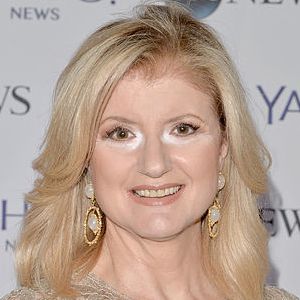Want to know what books Marc Alain Boucicault recommends on their reading list? We've researched interviews, social media posts, podcasts, and articles to build a comprehensive list of Marc Alain Boucicault's favorite book recommendations of all time.
1

Clayton M. Christensen, the author of such business classics as The Innovator’s Dilemma and the New York Times bestseller How Will You Measure Your Life, and co-authors Efosa Ojomo and Karen Dillon reveal why so many investments in economic development fail to generate sustainable prosperity, and offers a groundbreaking solution for true and lasting change.
Global poverty is one of the world’s most vexing problems. For decades, we’ve assumed smart, well-intentioned people will eventually be able to change the economic trajectory of poor countries. From... more Clayton M. Christensen, the author of such business classics as The Innovator’s Dilemma and the New York Times bestseller How Will You Measure Your Life, and co-authors Efosa Ojomo and Karen Dillon reveal why so many investments in economic development fail to generate sustainable prosperity, and offers a groundbreaking solution for true and lasting change.
Global poverty is one of the world’s most vexing problems. For decades, we’ve assumed smart, well-intentioned people will eventually be able to change the economic trajectory of poor countries. From education to healthcare, infrastructure to eradicating corruption, too many solutions rely on trial and error. Essentially, the plan is often to identify areas that need help, flood them with resources, and hope to see change over time.
But hope is not an effective strategy.
Clayton M. Christensen and his co-authors reveal a paradox at the heart of our approach to solving poverty. While noble, our current solutions are not producing consistent results, and in some cases, have exacerbated the problem. At least twenty countries that have received billions of dollars’ worth of aid are poorer now.
Applying the rigorous and theory-driven analysis he is known for, Christensen suggests a better way. The right kind of innovation not only builds companies—but also builds countries. The Prosperity Paradox identifies the limits of common economic development models, which tend to be top-down efforts, and offers a new framework for economic growth based on entrepreneurship and market-creating innovation. Christensen, Ojomo, and Dillon use successful examples from America’s own economic development, including Ford, Eastman Kodak, and Singer Sewing Machines, and shows how similar models have worked in other regions such as Japan, South Korea, Nigeria, Rwanda, India, Argentina, and Mexico.
The ideas in this book will help companies desperate for real, long-term growth see actual, sustainable progress where they’ve failed before. But The Prosperity Paradox is more than a business book; it is a call to action for anyone who wants a fresh take for making the world a better and more prosperous place. less 
Eric SchmidtClayton Christensen's latest book The Prosperity Paradox is a must-read. Powerful, persuasive, andwonderfully written, Christensen and his coauthors make a compelling case for the game-changing roleof innovation in some of the world's most desperate economies. (Source)

Arianna HuffingtonThe Prosperity Paradox has the power to transform our thinking about philanthropy and social good. Aswe continue to grapple with how to lift people out of poverty, Clay Christensen, Efosa Ojomo and KarenDillon provide a new and innovative solution for millions of people around the world. It's a must-readfor anyone with an interest in global affairs who wants to create a truly thriving society. (Source)

Steve CaseThe rise of any economy, local or global, must be fueled by innovative entrepreneurs willing to buildnew markets. With The Prosperity Paradox, Christensen, Ojomo, and Dillon offer powerful insight andguidance on how we can channel our efforts to create jobs, generate growth, and impact individual livesall over the world. (Source)
See more recommendations for this book...
2

Ben Horowitz, a leading venture capitalist, modern management expert, and New York Times bestselling author, combines lessons both from history and from modern organizational practice with practical and often surprising advice to help executives build cultures that can weather both good and bad times.
Ben Horowitz has long been fascinated by history, and particularly by how people behave differently than you’d expect. The time and circumstances in which they were raised often shapes them—yet a few leaders have managed to shape their times. In What You... more Ben Horowitz, a leading venture capitalist, modern management expert, and New York Times bestselling author, combines lessons both from history and from modern organizational practice with practical and often surprising advice to help executives build cultures that can weather both good and bad times.
Ben Horowitz has long been fascinated by history, and particularly by how people behave differently than you’d expect. The time and circumstances in which they were raised often shapes them—yet a few leaders have managed to shape their times. In What You Do Is Who You Are, he turns his attention to a question crucial to every organization: how do you create and sustain the culture you want?
To Horowitz, culture is how a company makes decisions. It is the set of assumptions employees use to resolve everyday problems: should I stay at the Red Roof Inn, or the Four Seasons? Should we discuss the color of this product for five minutes or thirty hours? If culture is not purposeful, it will be an accident or a mistake.
What You Do Is Who You Are explains how to make your culture purposeful by spotlighting four models of leadership and culture-building—the leader of the only successful slave revolt, Haiti’s Toussaint Louverture; the Samurai, who ruled Japan for seven hundred years and shaped modern Japanese culture; Genghis Khan, who built the world’s largest empire; and Shaka Senghor, a man convicted of murder who ran the most formidable prison gang in the yard and ultimately transformed prison culture.
Horowitz connects these leadership examples to modern case-studies, including how Louverture’s cultural techniques were applied (or should have been) by Reed Hastings at Netflix, Travis Kalanick at Uber, and Hillary Clinton, and how Genghis Khan’s vision of cultural inclusiveness has parallels in the work of Don Thompson, the first African-American CEO of McDonalds, and of Maggie Wilderotter, the CEO who led Frontier Communications. Horowitz then offers guidance to help any company understand its own strategy and build a successful culture.
What You Do Is Who You Are is a journey through culture, from ancient to modern. Along the way, it answers a question fundamental to any organization: who are we? How do people talk about us when we’re not around? How do we treat our customers? Are we there for people in a pinch? Can we be trusted?
Who you are is not the values you list on the wall. It’s not what you say in company-wide meeting. It’s not your marketing campaign. It’s not even what you believe. Who you are is what you do. This book aims to help you do the things you need to become the kind of leader you want to be—and others want to follow. less 
Andrew ChenToday, you can finally read my colleague and mentor @bhorowitz 2nd book, called “What you do is who you are” on creating and sustaining culture.
Great examples from:
- Bushido, Genghis Khan
- the Haitian slave revolt
- Uber and new tech cos
Buy it here: https://t.co/5dTB5AHVKb (Source)

Eric Ries"If you don’t methodically set your culture, then two-thirds of it will end up being accidental and the rest will be a mistake." Love this quote from @bhorowitz and highly recommend his new book that dives into this topic in more detail, coming out 10/29 https://t.co/p8aq4Rk1hq (Source)

Brian ArmstrongI read an early copy of @bhorowitz's new book about company cultures, and thought it was great! Check it out: https://t.co/9RRcPI2qbs (Source)
See more recommendations for this book...
Don't have time to read Marc Alain Boucicault's favorite books? Read Shortform summaries.
Shortform summaries help you learn 10x faster by:
- Being comprehensive: you learn the most important points in the book
- Cutting out the fluff: you focus your time on what's important to know
- Interactive exercises: apply the book's ideas to your own life with our educators' guidance.

